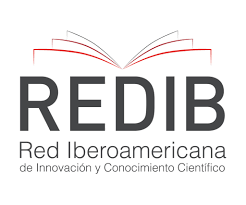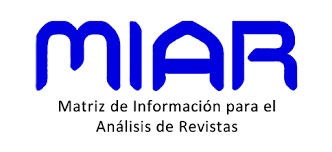Types of Emotional Interiority: Affective Reason
DOI:
https://doi.org/10.51743/cpe.498Keywords:
affective perception, affective response, Hildebrand, Husserl, love, primary and secondary intentionality, psychology, SchelerAbstract
In this essay, the affective interiority of de person is studied and a classification of affective experiences is proposed, based on the phenomenological theories of E. Husserl, M. Scheler and D. v. Hildebrand. In this classification, affective perception (Fühlen, Wertnehmen) is distinguished from affective responses (correct and incorrect) and mere emotions. Affective perceiving has a primary or “starting” intentionality, affective responses have only a secondary or response intentionality, and mere emotions are non-intentional experiences. In addition, love is described as a supra-intentional affectivity, which allows the deployment of affective intentionality. These phenomenological distinctions apply in decisive practical fields, such as ethics, education, psychology or psychiatry.
Downloads
References
Beites, P. F. (2013). Sobre la intencionalidad secundaria de las emociones. Diánoia, (vol. LVIII, nº 70), pp.3-34.
Beites, P. F. (2014). Tipos de motivación y vida moral: la propuesta de Edmund Husserl. Investigaciones fenomenológicas, (11), pp. 81-98.
Beites, P. F. (2017). El deber y lo “justo” en la ética fenomenológica: hacia una ética deontológica material. Anales del Seminario de Historia de la Filosofía, (34), pp. 645-661. http://dx.doi.org/10.5209/ASHF.56805 DOI: https://doi.org/10.5209/ASHF.56805
Brentano, F. (1955). Vom Ursprung sittlicher Erkenntnis. Hrsg. von Oskar Kraus, Felix Meiner, Hamburg. Trad. El origen del conocimiento moral, Tecnos, Madrid, 2002.
García-Baró, M. (1998). El discurso hiperbólico sobre Dios. Prolegómenos. En Sociedad Castellano-Leonesa de Filosofía (Ed.). Lenguajes sobre Dios, Encuentro.
Heidegger, M. (1986). Ser y tiempo. Max Niemeyer Verlag, Tübingen, Trad. El ser y el tiempo. FCE, 2ª ed., Madrid, 1971.
Husserl, E. (1920), Husserliana XXXVII. Einleitung in die Ethik. Vorlesungen Sommersemester 1920-4. Kluwer Academic Publishers, cop. 2004.
Hildebrand, D.v. (1973). Ethik. Gesammelte Werke II, Verlag W. Kohlhammer, Stuttgart, 2. Auf., Trad. Ética. Encuentro, Madrid, 2020, 3ª ed. revisada. (Original americano: Christian Ethics, David McKay Company Inc., New York 1953. Ethics, a partir de la segunda edición).
Hildebrand (1973). Die Geistigen Formen der Affektivität. En Situationsethik und kleiner Schriften, Stuttgart, pp. 195-208. Trad. esp. Las formas espirituales de la afectividad, Facultad de Filosofía, Universidad Complutense de Madrid, 1996.
Kenny, A. (1979). Action, emotion and will. Routledge and Kegan Paul, London https://doi.org/10.4324/9780203711460. DOI: https://doi.org/10.4324/9780203711460
Levinas, E. (2012). Totalidad e infinito. Sígueme, 2ª ed., Salamanca.
Martínez Gallego, M. A. (2022). Efectividad del valor y constitución del entorno en Max Scheler. Cauriensia, (XVII), pp. 309-32. DOI: https://doi.org/10.17398/2340-4256.17.309
Maturana, H. R. y Varela F. J. (1995). De máquinas y seres vivos. Autopoiesis: La organización de lo vivo. Editorial universitaria, 3ª ed., Chile.
Ortega y Gasset, J. (2004). Introducción a una estimativa. ¿Qué son los valores? Encuentro, Madrid. Tb. en Obras completas, Tomo 6, Alianza Editorial, Madrid.
Ortega y Gasset, J. (1983), Estudios sobre el amor (1941). En Obras Completas, Tomo 5, Alianza Editorial, Madrid.
Palacios, J. M. (2008). Bondad moral e inteligencia ética. Nueve ensayos de la ética de los valores. Encuentro, Madrid.
Rodríguez Duplá, Leonardo (2019). La primacía del amor. Estudios sobre la ética y la antropología de Max Scheler. Avarigani Editores, Madrid.
Schachter, S. y Singer, J. E. (1962). Cognitive, social and physiological determinants of emotional state. Psychological Review, (69), 379-399. DOI: https://doi.org/10.1037/h0046234
Scheler, M. (1980). Der Formalismus in der Ethik und die materiale Wertethik. En Gesammelte Werke, Band 2, Francke Verlag, sechste, durchgesehene Auflage, Bern und München. Trad.: Ética. Caparrós, Madrid, 2001.
Scheler, M. (1986). Ordo amoris. En Gesammelte Werke, Band 10. Schriften aus dem Nachlaβ, Band I, Bonn, Bouvier Verlag, dritte, duchgesehene Auflage, pp. 345‑376. Trad.: Ordo amoris. Caparrós, Madrid, 1996.
Scheler, M. (1979). Gesammelte Werke, Band 11. Schriften aus dem Nachlass, Band II, Francke Verlag, Bern und München.
Velázquez-González, J. (2023). Feeling in Values: Axiological and Emotional Intentionality as Living Structure of Ethical Life, Regarding Max Scheler’s Phenomenology”. Human Studies, (46), 43-57. DOI: https://doi.org/10.1007/s10746-022-09656-0
Downloads
Published
How to Cite
Issue
Section
License
The author reserves the rights (copyright) of the published works, and the journal encourages and allows their reuse, from the preprint. The works are published in the electronic edition of the journal under a license "Creative Commons Attribution / Attribution-NonCommercial 4.0 International Public License - CC BY-NC 4.0", and can be copied, used, disseminated, transmitted and publicly exhibited.
The author / s partially transfer the property rights (copyright) of this work for the printed and online editions, provided that:
- The authorship and original source of its publication (magazine, publisher and URL of the work) is cited.
- Are not used for commercial purposes.
- The existence and specifications of this user license are mentioned.
It also declares to have respected the ethical principles of research and to be free from any conflict of interest.
"C.P.E." encourages the authors and the scientific community to the maximum promotion and dissemination of the works in their final version through:
1) Your list of contacts (emails) and social networks (Facebook, Twitter, LinkedIn ...).
2) Institutional repository of your University and public repositories (Mendeley, Cosis ...).
3) Scientific social networks (ResearchGate, Academia.edu, Kudos ...).
4) Personal or institutional website, blog, etc.
5) Google Scholar, ORCID, ResearchID, ScopusID, Dimensions, PlumX ...
6) Printed copies purchased directly and sent to specialists for reading and subsequent citation if appropriate.




















1.png)
1.png)

1.png)





.png)
.png)

.png)
1.png)
1.png)
